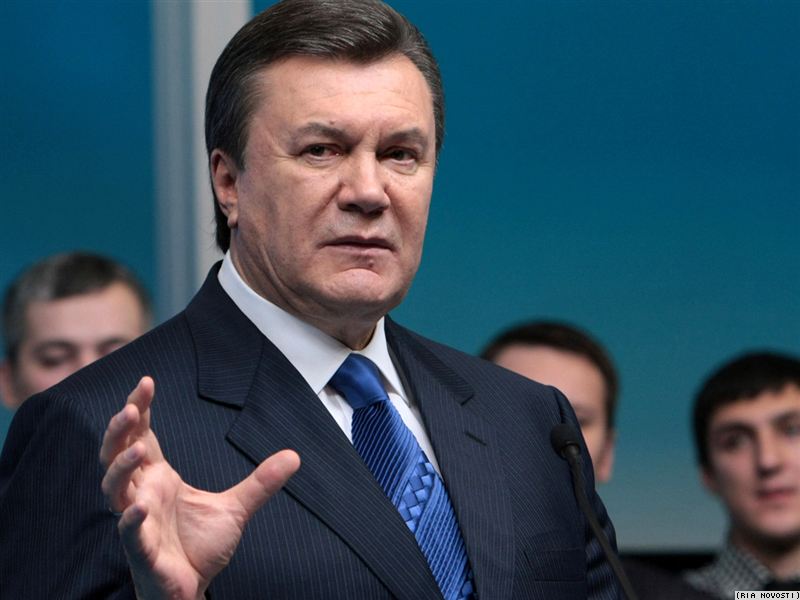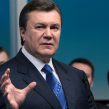
Ukraine Closes Road to NATO Membership
Publication: Eurasia Daily Monitor Volume: 7 Issue: 130
By:

On July 1, the Ukrainian parliament voted for a new law on “The Fundamentals of Domestic and Foreign Policy” that dropped the goal of seeking NATO membership. At 8:00 pm on July 1, only 50 deputies from the Stability and Reforms coalition were present and yet 259 “voted” in favor, showing the widespread use of absent deputies voting cards. To hide the voting falsification, live transmission of parliament on State Channel 1 and Rada channel were cut (https://blogs.pravda.com.ua/authors/tarasyuk/).
As with the April 27 Black Sea Fleet treaty extension, the law was rushed through parliament after ignoring 420 proposed changes by the opposition and without the scrutiny of parliamentary committees. Our Ukraine deputy, Vyacheslav Kyrylenko, described the vote on such an important issue of national security as a “farce,” adding “[Parliament’s] hall is a pure profanation of the democratic process” (www.pravda.com.ua, July 1). Parliament, in his view, has become a “rubber stamp body.”
The vote was timed to occur before US Secretary of State, Hillary Clinton, arrived in Kyiv on the following day. At a joint press conference President, Viktor Yanukovych, stated, “We appreciate today the reaffirmation of the US position to guarantee the sovereignty, independence, territorial integrity and inviolability of Ukraine’s state borders of Ukraine.” He went on to stress, “This is especially important for Ukraine as a European non-aligned country” emphasizing that Ukraine is now a “non-bloc country.” Clinton stressed that the door to NATO membership remained open (www.pravda.com.ua, July 2).
As former Foreign Minister, Borys Tarasiuk, highlighted Ukraine’s neutrality is not supported by any increase in the defense budget. Neutral Sweden and Finland spend between $608-745 per citizen on defense, while Ukraine spends only $26 per citizen (https://blogs.pravda.com.ua/authors/tarasyuk/). Neutral Ukraine has also agreed to a long-term foreign military base.
The July 1 vote came exactly eight years after the then President, Leonid Kuchma, issued a decree that first announced Ukraine’s desire to join NATO. He followed this with two failed attempts to obtain a Membership Action Plan (MAP) at the Prague 2002 and Istanbul 2004 NATO summits. Parliament’s approval of a 2003 law on national security that enshrined Ukraine’s desire for NATO membership was voted for overwhelmingly, including by the Party of Regions and was not opposed by the then Prime Minister, Yanukovych.
Ukraine’s new position is diametrically at odds with that of the Kuchma era where NATO played two roles. In 1994-1999 the NATO card was used to pressure Moscow to respect Ukraine’s sovereignty and territorial integrity. Although Russia was one of five nuclear powers that gave “security assurances” to Ukraine in December 1994 in exchange for it renouncing nuclear weapons and joining the non-proliferation treaty (NPT), the Russian executive and parliament took until 1997-1999 to sign and ratify a treaty that recognised Ukraine’s borders. The Russian-Ukrainian border has still to be delimited (President, Dmitry Medvedev, agreed to revisit this issue during his May visit to Kyiv) and demarcated.
Ukraine joined NATO’s Partnership for Peace (PfP) in January 1994 and a Documentation and Information center was opened in Kyiv in 1997, the second after Moscow. During 1994-2004 Ukraine became the most active CIS PfP member, developed extensive levels of cooperation with individual NATO countries, such as the UK and US, and sent troops to every peacekeeping mission under NATO. Ukraine entered a second stage in its relationship with NATO in 2000-2004. The Georgi Gongadze murder (“Kuchmagate”) and Kolchuga scandals (radars allegedly sent to Iraq) isolated Kuchma in the West and pushed Ukraine into Russia’s orbit. In addition, Washington established close relations with Moscow in the aftermath of the 9/11 terrorist attacks, which led to fears echoed today in Kyiv that a US-Russian “reset” would result in Ukraine being left within Russia’s sphere of influence.
In order to balance against Russia and break out of isolation, Kuchma took three steps. First, he sought NATO membership, especially following Russia’s threat to annex the Tuzla Island in September 2003. Second, in March 2003 he ingratiated himself with the US by sending the third largest troop contingent to join the US-led coalition in Iraq.
Five factors have changed over the last eight years:
1. In the post-Kuchma era, the Party of Regions evolved into an ideological party that represents the eastern Slavic-neo-Soviet political culture of Russophone eastern-southern Ukraine, particularly Donetsk and the Crimea.
2. A counter-reaction to the Viktor Yushchenko era (2005-2010), specifically perceived as his single-vector pro-Western foreign policy and poor relations with Russia.
3. Yanukovych, and the leadership of the Party of Regions, admires the rejuvenation of Russia under Vladimir Putin ignoring its authoritarianism and great power ambitions.
4. In Ukraine, support for NATO membership has declined, while opposition has grown. This has resulted from anti-American and anti-NATO campaigns launched since 2004 by the Party of Regions and its allies and the US invasion of Iraq which Ukrainians misunderstood as a “NATO” operation.
5. The Ukrainian leadership is the first to not see Russia as a threat to Ukraine’s sovereignty and territorial integrity and pursue a single vector pro-Russian foreign policy (EDM, March 12, April 23). The rationale for a “NATO card” is meaningless if Russia is no longer perceived as a threat.
On the eve of the Clinton visit, Western commentators offered mixed appraisals of Yanukovych, although more were on the critical side. Former US Ambassador to Ukraine, Steven Pifer, now a Senior Fellow at the Brookings Institution, pointed to the positive side of Ukraine’s parliament voting to approve the annual plan of military exercises with foreign troops, mainly NATO (www.brookings.edu/opinions/2010/0630_ukraine_pifer.aspx). This optimistic scenario ignores recent history and the political culture of the Ukrainian leadership. In the last five years, Yanukovych’s Party of Regions has withdrawn support for PfP exercises and this year’s positive vote could become a negative vote next year. Ukraine’s annual “Action Plans” in place since 2003, which differed little from MAP’s, have now become redundant as Kyiv no longer has any incentive to fulfil them, despite NATO’s optimism that cooperation will continue (www.pravda.com.ua, July 2).
Finally, an optimistic scenario ignores Yanukovych’s strong endorsement for Medvedev’s European security treaty, a revived Soviet style plan that replaces NATO with the Organization for Security and Cooperation in Europe (OSCE) and removes the US from Europe. It is a contradiction for Kyiv to reiterate its desire for continued high levels of cooperation under PfP, while also backing Russia in seeking to remove NATO and the US from European security.
Such contradictions have always been present in Yanukovych since 2004 when, with Ukrainian troops fighting in Iraq, his election campaign was accompanied by a fierce anti-American campaign (EDM July 7, 2004). Contradictions remain, leading to continued confusion in the West as to the nature of Ukrainian foreign policy.




